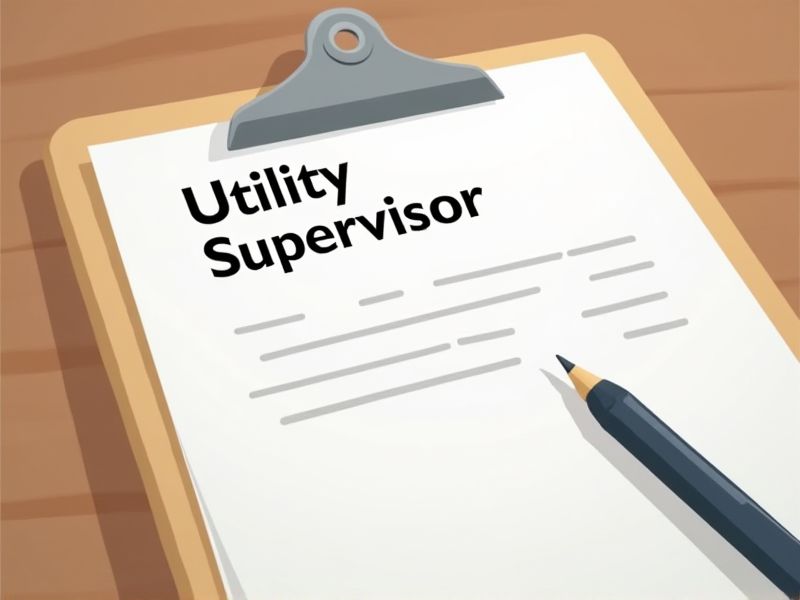
Utility Supervisors oversee vital infrastructure that requires precise technical and safety knowledge. Certifications in areas like water management, energy conservation, and workplace safety ensure supervisors can effectively manage systems and teams. These credentials also provide assurance that they are equipped to handle unexpected challenges, mitigating potential risks. Some essential certifications you may require as a Utility Supervisor include the following.
OSHA 30-Hour General Industry Certification
Utility supervisors often encounter hazardous work environments; hence, the OSHA 30-Hour General Industry Certification provides critical safety training and knowledge to mitigate risks. Certification ensures that supervisors understand compliance with OSHA regulations, reducing the likelihood of workplace accidents and legal liabilities. By prioritizing workplace safety, utility companies can improve operational efficiency and maintain a positive safety record. Programs that include this certification often witness reduced incident rates, reflecting a safer work culture and enhanced employee morale.
Certified Energy Manager (CEM)
Utility supervisors face increasing demands to enhance energy efficiency. A Certified Energy Manager (CEM) provides specialized expertise in identifying energy-saving opportunities, optimizing systems, and reducing operational costs. In-depth knowledge of sustainable practices allows the utility sector to meet environmental regulations and expectations. Certification enhances credibility and trust, facilitating better decision-making and leadership within utility operations.
Project Management Professional (PMP)
A Project Management Professional (PMP) certification equips a Utility Supervisor with standardized project management techniques, leading to more efficient project execution. Mastery of risk management and planning gained from PMP ensures better response to unexpected challenges in utility projects. The certification enhances leadership skills, crucial for managing teams and coordinating complex projects with multiple stakeholders. As utility projects often involve significant investment, PMP certification provides a structured approach to ensure timely completion and budget adherence.
Certified Maintenance and Reliability Professional (CMRP)
The CMRP certification enhances a utility supervisor's ability to implement best practices in equipment maintenance and reliability, leading to reduced downtime. It provides a standardized framework, which helps in improving operational efficiency and safety within utility facilities. Certification assures stakeholders of the supervisor's expertise in managing critical assets effectively, vital in preventing costly failures. CMRP-credentialed supervisors often contribute to sustainable utility operations through optimized resource management and extended asset life expectancy.
NERC Operator Certification
NERC Operator Certification ensures that a Utility Supervisor has the necessary knowledge and skills to maintain grid reliability and stability, which is crucial to prevent blackouts. Certification provides a standardized benchmark, allowing utility companies to ensure their supervisors meet specific competencies and regulatory requirements. Training associated with certification enhances a supervisor's understanding of grid operations, leading to more effective and informed decision-making. As energy grids become more complex with the integration of renewable resources, certified supervisors are better equipped to manage evolving operational challenges.
Water Treatment Operator Certification
Water Treatment Operator Certification ensures a Utility Supervisor possesses the technical expertise necessary to manage complex water systems effectively. This certification demonstrates a commitment to maintaining compliance with regulations designed to safeguard public health. It also provides assurance that the supervisor can respond promptly and appropriately to water quality issues. Certified supervisors often contribute to improved operational efficiency and cost management within the utility.
Electrical Licensing Certification
Electrical Licensing Certification for a Utility Supervisor ensures compliance with industry regulations and safety standards, reducing the risk of accidents and legal liabilities. Certified supervisors have verified skills and knowledge, enhancing the credibility and reputation of the utility company. Knowledge gained through certification enables supervisors to oversee and optimize electrical systems efficiently, leading to improved operational performance. The certification requirement ensures a uniform standard of competency, fostering trust and collaboration among team members and stakeholders.
EPA Universal Certification
Utility Supervisors need the EPA Universal Certification because it ensures compliance with federal regulations related to refrigerant handling, protecting both the environment and the public. Certification equips supervisors with the knowledge necessary to manage and supervise HVAC systems safely, reducing the risk of accidental releases. Fines and legal liabilities can arise from non-compliance, so the certification acts as a safeguard against such financial risks. The certification reflects a commitment to professional standards, potentially enhancing the supervisor's credibility and career prospects.
Lean Six Sigma Green Belt Certification
Lean Six Sigma Green Belt Certification equips a utility supervisor with tools to enhance process efficiency, reducing waste and operational costs. The certification provides essential skills for data-driven decision-making, leading to improved service reliability and customer satisfaction within utilities. By understanding and implementing lean principles, utility supervisors can better manage resources, resulting in streamlined operations. Certified supervisors often demonstrate increased problem-solving capabilities, fostering innovation and continuous improvement in utility management.
Leadership in Energy and Environmental Design (LEED) Accredited Professional
The growing emphasis on sustainable infrastructure demands that a Utility Supervisor possesses expertise in environmentally responsible practices, often demonstrated through LEED Accreditation. By having LEED Accredited Professionals, utilities can implement more energy-efficient and cost-effective systems, aligning with regulatory standards. LEED credentials in utility management ensure that projects meet best practice standards for sustainability and ecological impact. Emphasizing sustainability in utility supervision often leads to enhanced public perception and stakeholder trust.
Summary
With a Utility Supervisor obtaining certifications, you can anticipate enhanced efficiency and improved decision-making in utility operations. This progression often leads to increased safety standards and reduced operational costs due to a deeper understanding of best practices. The organization could experience a boost in compliance with regulations, minimizing potential legal challenges. Overall, acquiring certifications positions you to promote innovation and adaptation within the utility sector.
